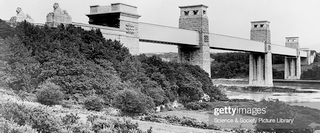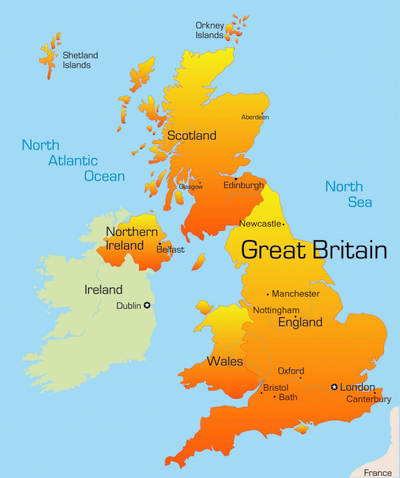A Child's History of England.65
But the Welsh, although they were naturally a gentle, quiet, pleasant people, who liked to receive [接待] strangers in their cottages among the mountains, and to set [put] before them with free hospitality whatever they had to eat and drink, and to play to them on their harps, and sing their native ballads [歌谣] to them, were a people of great spirit when their blood was up. Englishmen, after this affair, began to be insolent [傲慢] in Wales, and to assume the air of masters; and the Welsh pride could not bear it. Moreover, they believed in that unlucky old Merlin, some of whose unlucky old prophecies somebody always seemed doomed to remember when there was a chance of its doing harm; and just at this time some blind old gentleman with a harp and a long white beard, who was an excellent person, but had become of an unknown age and tedious, burst out with a declaration that Merlin had predicted that when English money had become round, a Prince of Wales would be crowned in London. Now, King Edward had recently forbidden the English penny to be cut into halves and quarters for halfpence [1/2便士] and farthings [1/4便士], and had actually introduced a round coin; therefore, the Welsh people said this was the time Merlin meant, and rose accordingly.
King Edward had bought over Prince David, Llewellyn's brother, by heaping favours upon him; but he was the first to revolt, being perhaps troubled in his conscience. One stormy night, he surprised the Castle of Hawarden, in possession of which an English nobleman had been left; killed the whole garrison [守备部队], and carried off the nobleman a prisoner to Snowdon. Upon this, the Welsh people rose like one man. King Edward, with his army, marching from Worcester to the Menai Strait, crossed it - near to where the wonderful tubular iron bridge now, in days so different, makes a passage for railway trains - by a bridge of boats that enabled forty men to march abreast. He subdued [镇压] the Island of Anglesea, and sent his men forward to observe the enemy. The sudden appearance of the Welsh created a panic among them, and they fell back to the bridge. The tide had in the meantime risen and separated the boats; the Welsh pursuing them, they were driven into the sea, and there they sunk, in their heavy iron armour, by thousands. After this victory Llewellyn, helped by the severe winter-weather of Wales, gained another battle; but the King ordering a portion of his English army to advance through South Wales, and catch him between two foes, and Llewellyn bravely turning to meet this new enemy, he was surprised and killed - very meanly, for he was unarmed and defenceless. His head was struck off and sent to London, where it was fixed upon the Tower, encircled with a wreath, some say of ivy, some say of willow, some say of silver, to make it look like a ghastly coin in ridicule of the prediction.


David, however, still held out for six months, though eagerly sought after by the King, and hunted by his own countrymen. One of them finally betrayed him with his wife and children. He was sentenced to be hanged, drawn, and quartered [分尸]; and from that time this became the established punishment of Traitors in England - a punishment wholly without excuse, as being revolting, vile, and cruel, after its object is dead; and which has no sense in it, as its only real degradation (and that nothing can blot out) is to the country that permits on any consideration such abominable barbarity.
六级/考研单词: hospitable, indigenous, doom, superb, tedious, burst, princess, lately, prohibit, penny, thereby, accordingly, heap, revolt, conscience, noble, march, strait, railroad, abreast, gradual, panic, tide, meanwhile, pursuit, armour, portion, foe, silver, ridicule, eager, hunt, betray, punish, degrade




 浙公网安备 33010602011771号
浙公网安备 33010602011771号